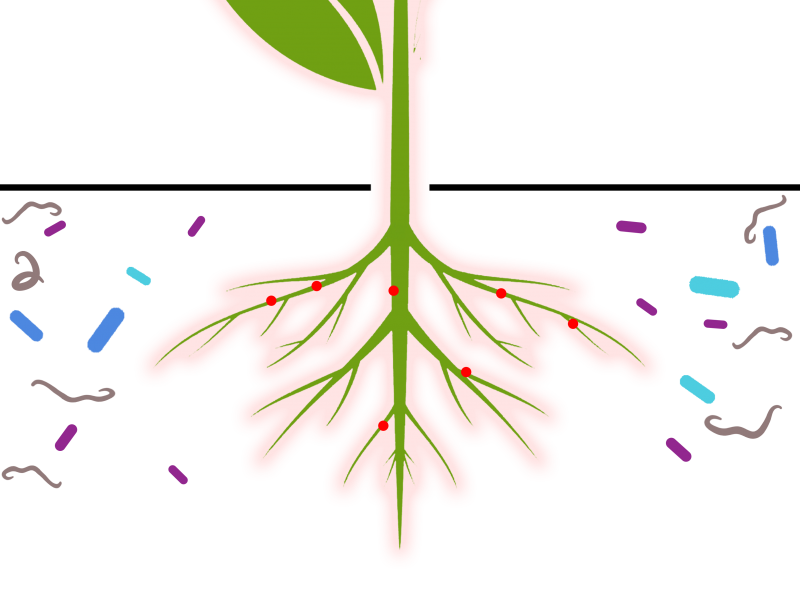|
|
| Line 72: |
Line 72: |
| | | | |
| | </section> <!-- end s-home --> | | </section> <!-- end s-home --> |
| − |
| |
| − |
| |
| − | <!-- about
| |
| − | ==================================================
| |
| − | <section id='project' class="s-about">
| |
| − |
| |
| − | <div class="row section-header has-bottom-sep" data-aos="fade-up">
| |
| − | <div class="col-full">
| |
| − | <h3 class="subhead subhead--dark">Hello There</h3>
| |
| − | <h1 class="display-1 display-1--light">We are Alternative Roots</h1>
| |
| − | </div>
| |
| − | </div> <!-- end section-header
| |
| − |
| |
| − | <div class="row about-desc" data-aos="fade-up">
| |
| − | <div class="col-full">
| |
| − | <p class="about-para">Sustainability is a topic of increasing concern in the fields of agriculture, food security and rural development. There is a dire need for innovation in this field; primarily driven by predictions of substantial global population increase coupled with severe pressure on non-renewable resources. The result is a necessity to increase food production whilst reducing our impact on the environment. As such, our aim is to find sustainable solutions that address some of these issues. </p>
| |
| − | <p class="about-para">Nitrogen-fixation for fertilizer production is extremely energy-intensive, accounting for 80% of energy use in agriculture. This is due to the high temperatures and pressures involved in the Haber-Bosch process. Nitrogen is essential for plant growth but cannot be directly accessed from the atmosphere by plants despite its abundance. If an alternative to fertilizers could be developed to provide nitrogen for plant growth that is cheap, easy to use and sustainable, then energy use in the agriculture sector could be greatly reduced.</p>
| |
| − | <p class="about-para">In 2018, Team Newcastle aim to engineer microbes for sustainable agriculture. The team shall build upon Newcastle University’s long and illustrious history in agriculture and food security research by engineering root colonising microbes. The microbes will attract bacteria that modify the soil's composition including nitrogen content, in a fashion that is suitable for uptake by plants via the roots.</p>
| |
| − |
| |
| − | </div>
| |
| − | </div> <!-- end project-desc
| |
| − |
| |
| − | <div class="row about-stats stats block-1-4 block-m-1-2 block-mob-full" data-aos="fade-up">
| |
| − |
| |
| − | <div class="col-block stats__col ">
| |
| − | <div class="stats__count">10</div>
| |
| − | <h5>BILLION PEOPLE WILL</h5>
| |
| − | <h5>INHABIT EARTH BY 2050</h5>
| |
| − | </div>
| |
| − | <div class="col-block stats__col">
| |
| − | <div class="stats__count">83</div>
| |
| − | <h5>MILLION EXTRA PEOPLE</h5>
| |
| − | <h5>NEED TO BE FED EACH YEAR</h5>
| |
| − |
| |
| − | </div>
| |
| − | <div class="col-block stats__col">
| |
| − | <div class="stats__count">842</div>
| |
| − | <h5>MILLION PEOPLE SUFFER</h5>
| |
| − | <h5>FROM HUNGER WORLDWIDE</h5>
| |
| − | </div>
| |
| − | <div class="col-block stats__col">
| |
| − | <div class="stats__count">200</div>
| |
| − | <h5>MILLION TONNES OF</h5>
| |
| − | <h5>FERTILIZER USED ANNUALLY</h5>
| |
| − | </div>
| |
| − |
| |
| − | </div> <!-- end about-stats
| |
| − |
| |
| − | <div class="about__line"></div>
| |
| − |
| |
| − | </section> <!-- end s-about -->
| |
| | | | |
| | | | |
| Line 187: |
Line 136: |
| | | | |
| | <div class="mySlides fade"> | | <div class="mySlides fade"> |
| − | <div class="numbertext">7 / 15</div> | + | <div class="numbertext">8 / 15</div> |
| | <img src="https://static.igem.org/mediawiki/2018/thumb/2/22/T--Newcastle--RoundLogo.png/555px-T--Newcastle--RoundLogo.png"> | | <img src="https://static.igem.org/mediawiki/2018/thumb/2/22/T--Newcastle--RoundLogo.png/555px-T--Newcastle--RoundLogo.png"> |
| | <br></br> | | <br></br> |
















